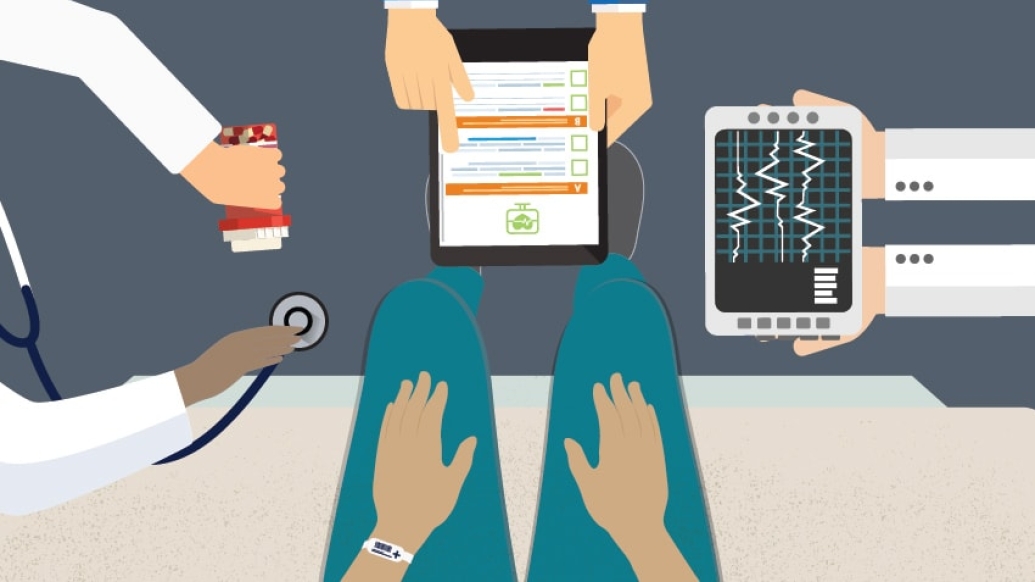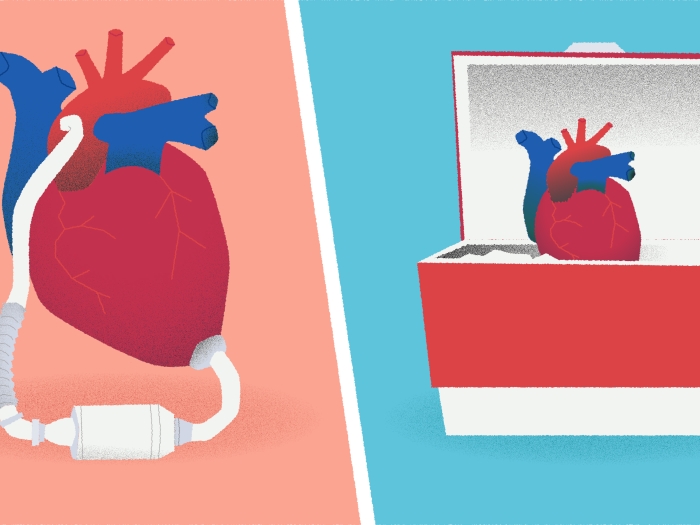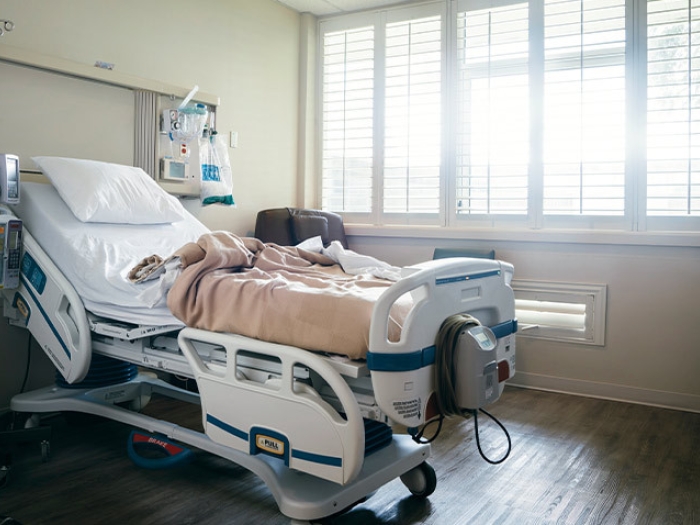Rooted in research, a Michigan Medicine clinic aims to help intensive care unit patients receive proper follow-up care and prevent readmissions.
7:00 AM
Author |

After close observation and treatment in an intensive care unit, patients who have fought through their critical illness are sent home to continue recovery.
But then what?
For many patients, they may not be prepared for the recovery process following an ICU admission.
MORE FROM THE LAB: Subscribe to our weekly newsletter
"It's interesting, because we all celebrate when a patient survives a severe critical illness and is able to go home, but really that's only half of the battle," says Jakob McSparron, M.D., assistant professor of pulmonary and critical care medicine at Michigan Medicine. "The next step is thinking about follow-up care and how to help them recover effectively and keep them from being hospitalized again."
And it's why a new clinic at Michigan Medicine was established to aid in that recovery process.
The University of Michigan Post ICU Longitudinal Survivor Experience Clinic (U-M PULSE) is one of just a few such clinics in the country. Set up to provide multidisciplinary care, it allows patients to be seen by a pharmacist, social worker and physician in the same visit.
"We're hoping to help patients who may fall through the cracks," McSparron, the clinic's director, says. "Many people are not connected with a support system and health care providers. For example, a 30-year-old who was completely healthy, became critically ill, and now is just not able to return to their normal routine."
Although the clinic, which opened in March at Michigan Medicine's Taubman Center, is looking internally at ICU patients within Michigan Medicine, it is also open to patients who have recently stayed in an ICU elsewhere.
Inspired by research
The U-M PULSE Clinic is built upon research examining post-sepsis morbidity by McSparron's colleagues Hallie Prescott, M.D., assistant professor of pulmonary and critical disease, and Jack Iwashyna, M.D., associate professor of pulmonary and critical disease and co-director of the National Clinician Scholars Program.
SEE ALSO: How Cardiac ICU Patient Composition Is Changing Over Time
The pair have each authored several studies examining sepsis, with one of Prescott's most recent research articles demonstrating the need for proper post-discharge follow-up care for sepsis survivors in order to improve patient outcomes.
According to the Centers for Disease Control and Prevention, more than 1.5 million people acquire sepsis each year in the United States, with 250,000 of those dying from the infection.
The U-M PULSE staffers expect to encounter the condition on a regular basis.
"While we will definitely treat patients recovering from other critical illnesses, sepsis appears to be one illness we expect many of our patients to be recovering from," McSparron says.
He adds that common symptoms after sepsis include fatigue, difficulty swallowing, cognitive impairment, difficulty sleeping and anxiety. All of these are factors the clinic hopes to help patients work through, treat and recover from successfully.
A personal, comprehensive approach
Patients, no matter their illness, should expect the first clinic visit to last about two hours.
"This first visit is crucial and should take place two to four weeks after the patient leaves the hospital," McSparron says. "This visit is where the patient's care plan is put into place and we will maintain regular contact with them following this visit." Patients are seen in clinic again approximately six months later.
Patients begin their initial appointment by filling out surveys designed to evaluate quality of life, limitations patients are experiencing and the impact of their illness on caregivers. Next comes testing, both for pulmonary function as well as an assessment for fitness and mobility.
The patient then will sit down with Rima Mohammad, PharmD, clinical pharmacist and clinical associate professor at the U-M College of Pharmacy, for a comprehensive medication review.
"This is a very important step," McSparron says. "Sometimes we find medications that were necessary in the ICU are no longer necessary for the patient — and in fact could be doing more harm than good or are reacting in a negative way with any medication they were taking previous to the critical illness."
Next, the patient has a social work consultation with Mari Pitcher, MSW, a licensed clinical social worker and adjunct lecturer at the U-M School of Social Work, to review the surveys filled out in the waiting room and perform cognitive testing.
"The social work consultation is open not only to the patient, but any family members or caregivers who would like to participate," McSparron says. "This type of illness is not just life-changing for the patient, but also those who love and care for them."
After meeting with the social worker, the patient moves on to a physical clinical evaluation and medical review.
Finally, all three providers, and co-founders of the clinic, meet to talk about their respective exams and discuss the services and follow-up care the patient needs.
"This can be anything from medication changes to physical therapy to seeing a sleep specialist and consulting with a nutritionist," McSparron says.
Sharing findings and success stories
After the rotations, the U-M PULSE team then meets with the patient to outline the care plan, as well as help facilitate any necessary referrals to access services. They'll also schedule a six-month follow-up visit; telephone and virtual check-ins will also occur before that time as needed.
SEE ALSO: To Reduce Hysterectomy-Related Readmissions, Target Those at Risk
This process, McSparron explains, has the ultimate goal of improving quality of life for patients and caregivers, and potentially keeping patients from having another hospitalization due to the original illness. Such a dangerous cycle, as noted by Prescott in a recent JAMA article, is common among sepsis survivors.
And those survivors have the potential to affect change: McSparron and team hope that the clinic's early patients will one day be able to share their success stories with others.
"It would be great to see patients who have found the clinic improved their health to join in a peer-mentoring program for current patients," says McSparron, whose team will continue to study the effectiveness of the new model. "Having a strong support system is an integral part in the recovery process from a critical illness.

Explore a variety of healthcare news & stories by visiting the Health Lab home page for more articles.

Department of Communication at Michigan Medicine
Want top health & research news weekly? Sign up for Health Lab’s newsletters today!





